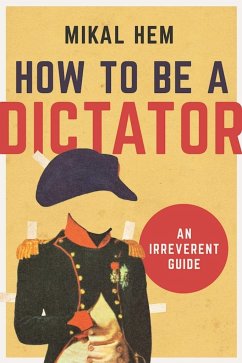
Kill Box
Military Drone Systems and Cultural Production
Versandkostenfrei!
Versandfertig in 1-2 Wochen
87,99 €
inkl. MwSt.
Weitere Ausgaben:

PAYBACK Punkte
44 °P sammeln!
Drone warfare represents one of the most pressing moral and political problems of contemporary military ethics. Since the beginning of the American drone program in the late twentieth century, drone technologies have been used to conduct remote extrajudicial assassinations, to violate national sovereignty, and to conduct intrusive surveillance in contravention of international human rights norms, among other controversial uses. Today, military drones are used by dozens of military forces. As such, these technologies pose urgent questions which problematize well-established ways of thinking abo...
Drone warfare represents one of the most pressing moral and political problems of contemporary military ethics. Since the beginning of the American drone program in the late twentieth century, drone technologies have been used to conduct remote extrajudicial assassinations, to violate national sovereignty, and to conduct intrusive surveillance in contravention of international human rights norms, among other controversial uses. Today, military drones are used by dozens of military forces. As such, these technologies pose urgent questions which problematize well-established ways of thinking about central aspects of the ethics of warfare, such as justice, sovereignty, battlefield trauma, the political and physical limits of conflict, and, perhaps most prominently of all, the legitimacy of military violence. Though some of these concerns are well-worn, their central role in - and reconfiguration by - drone warfare means that they deserve serious reconsideration. Kill Box investigates this urgent conceptual territory through readings of the popular cultural productions that have emerged as a part of these debates, and reveals the ways in which narrative texts have been an integral part of the framing of these political and philosophical conversations. Examining well-known single-issue drone texts, such as Eye in the Sky, Good Kill, and The Drone Eats with Me, alongside lesser known texts, such as pulp novels, genre sci-fi, and Netflix thrillers, this new book shows us the surprisingly versatile and elastic ways in which drone discourse continues to be co-constituted by narrative entertainment.














